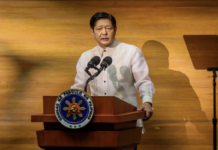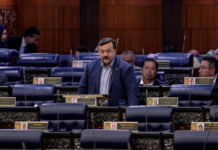KUALA LUMPUR, Sept 3 – Malaysia continues to practice a pragmatic and friendly foreign policy with all parties without compromising the country’s sovereignty or becoming a puppet of any foreign power, said Universiti Utara Malaysia (UUM) Deputy Vice-Chancellor (Academic and international) Prof Dr Mohd Azizuddin Mohd Sani.
Commenting on the criticism made in a recent issue of The Economist magazine, the political observer and international relations expert said the criticism seemed to portray Malaysia as a liberal country that supports all Western policies.
Mohd Azizuddin said Malaysia is not a liberal country but a sovereign country that has the right to determine its political, socio-economic and administrative direction according to its own practice and has adopted a neutral and open Foreign Relations Policy, which was to be friendly to anyone who could bring prosperity and national interests.
“The criticism from the magazine, we know, they support liberalism which sees the leadership of Prime Minister Datuk Seri Anwar Ibrahim-led Malaysia’s foreign policy towards those who are considered enemies of the West like our cooperation with Russia, China and Eastern countries.
“This is an unfair accusation or criticism because they already consider Malaysia or the prime minister (Anwar) himself to be pro-Western who has run away from liberal or undemocratic policies, even though we are not pro-Western,” he told Bernama.
The Economist published an article titled ‘Why does the West back the wrong Asian leaders? among other things, criticized Anwar, who is said to have received Western support before, but is no longer with the West because he has good relations with Western enemies like Russia, China and has openly met Ismail Haniyeh, the Hamas leader who was recently killed in Iran.
Commenting further, Mohd Azizuddin said Malaysia are generally with the West but it is in the context of establishing trade and foreign investment cooperation, just like cooperation with other countries, thus creating a more complete economic prosperity for the country.
He believes that the West may be concerned by Malaysia’s desire to join the economic union spearheaded by Brazil, Russia, India, China and South Africa (BRICS), which is joined by Western enemies, as well as Anwar’s volume of support for the Palestinian cause at the global level.
“In the context of Anwar’s assertiveness on the Palestinian issue on the international stage, he is the only leader to openly criticise the West for supporting Israeli atrocities against Palestinians… This shows that Anwar’s constructive criticism makes the West (The Economist) feel uncomfortable.
“Anwar’s identity remains intact, the struggle over Palestine when he was in Angkatan Belia Islam Malaysia (ABIM) has continued, even the approach when he was Finance Minister then and now, namely cooperation for shared prosperity, is still the same and continues… there is consistency there.
” At the same time, Malaysia is becoming a middle power as a voice for countries that are left out on the bigger stage globally,” he said.
He also slammed claims that Anwar’s leadership changed when he became prime minister compared to the opposition, saying it was not correct because the reform agenda brought by the leader was now more structured, careful and focused.
















